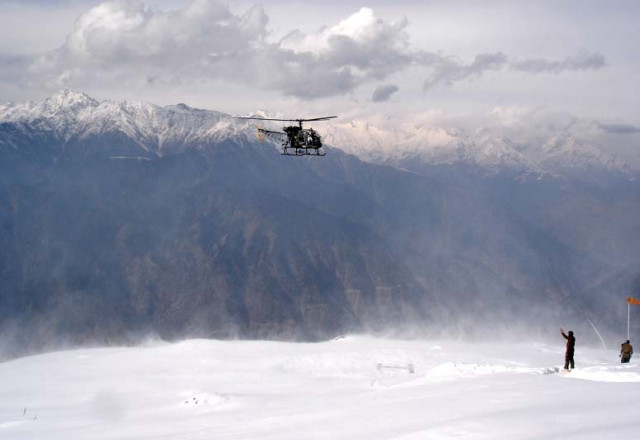Why the Siachen issue must be resolved
The glacier is coming unstuck because of unnatural warming. Has killed Pakistani troops there due to Indian deployment

Why the Siachen issue must be resolved
The quarrel is absurd. The 1948 Indo-Pak war ended with an agreed map that delineated the Line of Control (LoC) which reached the grid NJ9842. From this point onwards, the agreed map simply said “thence north to the glaciers”, thus creating a no-man’s land. India says Pakistan moved its troops into the region beyond NJ9842 before it ‘responded’ in 1984: Pakistan says the Indian move began the conflict and that Pakistan was taken by surprise. And the two repeatedly came close to signing an agreement over Siachen only to be pushed back by untoward incidents in the plains.
And now the first big disaster has taken place. The glacier is becoming unstuck because of unnatural warming and has killed Pakistani troops forced to be there because of Indian deployment, threatening the economy of a water-scarce South Asia. A UN official, whose book Biodiversity Conservation in Himalayas has just been released says: “The Siachen Glacier in Ladakh has receded by about 800 metres in the last 20 years and is facing threat of climate change caused by military activities in the region”.
Siachen is the most unlucky natural location in the world because 3,000 Indian troops are living and operating there, “hundreds of machines and scores of choppers flying daily over the region, with the result that the environment and ecosystem have deteriorated. The two armies survive by keeping themselves warm and by artificially making the high altitude surface suitable for their activities, depositing tons of chemicals on the surface of the glacier, thereby not only polluting the headwaters of the Indus river but also raising the temperatures in the area”.
Pakistan wants a climb down on what has become a ‘supplementary’ dispute to distract attention from the ‘core’ issue of Kashmir. In 1999, by staging the Kargil Operation, Pakistan provided an excuse for the Indian hawks to advise their government to stay put. A neutral observer once said that: “India should take a fresh look at the policy that has tied it down to a dangerous and costly strategy of defending every peak and hillock “for propaganda reasons, not because of military compulsions”.
The tragedy struck just before Pakistan’s peace-seeking president, Asif Ali Zardari, went on a visit to India during which he had lunch with the Indian Prime Minister Dr Manmohan Singh, very much a man of peace himself. Now that both sides are committed to normalisation of relations through trade and Pakistan knows the consequences of its non-state actors perpetrating cross-border terrorism, perhaps, it is time for rationality to prevail over Siachen. Let us not destroy human life in South Asia just because the two states can’t find solutions to their bilateral problems.
Published in The Express Tribune, April 10th, 2012.















COMMENTS
Comments are moderated and generally will be posted if they are on-topic and not abusive.
For more information, please see our Comments FAQ